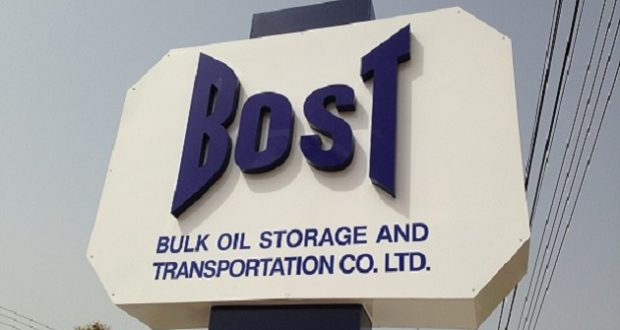Special topics
 Stakeholders in Ghana’s oil and gas sector urged authorities here on Thursday to take steps to end the clumsy nature of the regulatory framework governing Ghana’s oil and gas sector.
Stakeholders in Ghana’s oil and gas sector urged authorities here on Thursday to take steps to end the clumsy nature of the regulatory framework governing Ghana’s oil and gas sector.
They asked for the quick passage of the Petroleum Exploratory and Production (E&P) Bill by parliament to become the mother of all the other pieces of legislation governing the sector.
Explaining the rationale behind the call, Hannah Owusu-Koranteng, a member of the Ghana Extractive Industry Transparency Initiative (GHEITI) said the passage of the laws such as the Petroleum Revenue Management Act (PRMA), the Local Content Act and other Legislative Instruments (LIs) ahead of the E&P was very problematic.
Speaking in an interview on the sides of a day’s stakeholder forum on Ghana’s E& P bill Owusu-Korateng said the natural sequence of events should have begun with a constitutional provision, spelling out how to conserve Ghana’s natural resources including oil and gas, followed by a policy framework on oil and gas.
She added that these two provisions would have informed the passage of an Act on petroleum exploration and production, before all other forms of legislations are passed and Agreements and licenses are entered into.
“But we have the E&P being done after the Petroleum Revenue Management Act (PRMA) has come into force, which is a very serious error and must be corrected,” Owusu-Koranteng stated.
When Ghana government embarked on the aggressive oil exploration program in the 1980s, the Provisional National Defence Council (PNDC) government passed the Petroleum Act of 1984, (PNDC-Law 84) to regulate the entire petroleum exploration and production.
“The PNDCL 84 which has been in existence before oil discovery in 2007 was not the enough because it did not take into account environmental protection issues, citizens rights and local content issues,” she maintained.
Owusu-Koranteng conceded that at the time othe PNDCL 84 was passed Ghana had had no history of oil production or enough examples to fall on, adding that with the experiences of the likes of Brazil and Nigeria available, the best thing should have been the enactment of the E& P law before oil and gas production stated.
Owusu-Koranteng who is Associate Executive Director of WACAM, a local advocacy group in the extractive industry considers the draft E&P bill a very good one which needs to be fine-tuned and passed early to sanitize the sector.
Speaker after speaker at the forum praised the government for the draft bill asking for the few rough edges to be straightened and the bill passed into law as soon as possible.
Mohammed Amin Adams, Petroleum Economist and Executive Director for Africa Center for Energy Policy (ACEP) who spoke on the Fiscal and Contractual Provisions in the new
Bill urged that ring-fencing be done in the petroleum sector to ensure that revenue from a profitable block is not used to offset losses in another block operated by the same contractor or another contractor.
He said what pertains in Ghana’s oil sector was a cross-fencing, which was established at the time Ghana was looking for partners to be able to discover oil.
Adams also cautioned that without new investments, Ghana would not be able to reach 500,000 barrels of oil per day (500,000 bopd) production even in the next 10 years.
Major Daniel Ablorh Sowah-Quarcoo (Rtd), Chairman of the Public Interest and
Accountability Committee (PIAC) the independent constitutional body tasked with ensuring transparency in the spending of petroleum revenue in Ghana called for the harmonization of all the tax laws in the petroleum sector and the Internal Revenue Act.
“If this is not done, the International Oil Companies (IOCs) can hide behind clauses in their petroleum agreements to prevent the taxation based on any other tax law, beside the PIT,” Sowah-Quarcoo explained.
Ghana has a Petroleum Income Tax (PIT) law based on which the contractors operating in Ghana’s Jubilee field are taxed.
“The draft E&P Bill applies to petroleum activities within the jurisdiction of the Republic of Ghana, including activities in, under and upon its territorial land, inland waters, territorial sea, exclusive economic zone and its continental shelf,” the opening of the bill stated.
The objective of the law is to provide for, and ensure safe, sustainable and efficient petroleum activities in order to achieve optimal long-term petroleum resource exploration for the benefit and welfare of the people of Ghana.
In 2007, Ghana discovered oil in commercial quantities, and started commercial production in December 2010.
Source: http://ghanaoilonline.org
Get the latest news and updates on Ghana’s oil and gas value chain by following us Reporting Oil and Gas on twitter @oilgasghana and like our facebook page and get at us on Google+. Subscribe to our group to get update